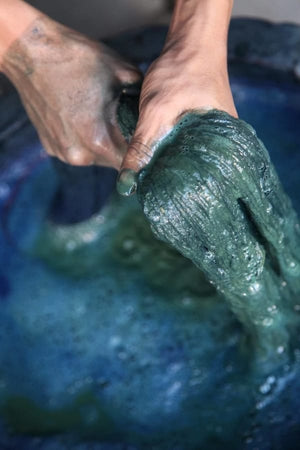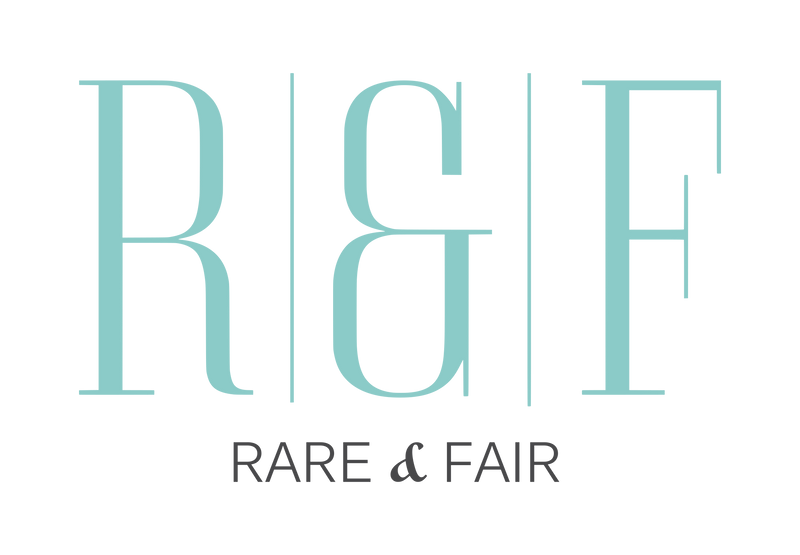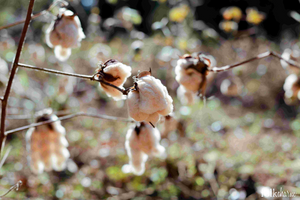Is all organic cotton created equal? We take a closer look at what makes FolkCharm Crafts natural organic cotton so special!
As an ethical enterprise, FolkCharm partners with natural organic cotton farmers, artisanal communities and local craftswomen to produce textiles, apparels and products with the perfect combination of contemporary living and traditional wisdom.
We are extremely excited to be partnering with them, so just had to share their awesome work with the rest of you!
 Photo Credit: FolkCharm Crafts
Photo Credit: FolkCharm Crafts
Natural or Organic Cotton - What’s the difference?
Organic Cotton
Organic cotton is not created equal. What might come as quite a shock to some is just because a label says organic, this does not necessarily mean it is sustainably or ethically produced.
Put simply, organic cotton means that no toxic chemicals or genetically modified organisms (GMOs) are used. We can all agree that this is a good thing, especially as conventional cotton uses more pesticides globally than any other single crop!
Switching to organic means less of these nasty, toxic chemicals disrupting our ecosystems and the beautiful animals (including us!) they maintain. But organic cotton, if not grown correctly, does come with some unfortunate side issues.
By using less fertilizer and non-GMO seeds, less cotton is produced per acre than conventional cotton. This means, on average, organic cotton uses more water and land than conventional cotton. This could actually make organic cotton worse for the environment than conventional cotton, if grown in the wrong environment or produced through unsustainable management practices.
Natural Cotton
There is no single definition for natural cotton. Here at Rare & Fair, we like to refer to natural cotton as cotton that is grown as naturally as possible within its local environment. For example, the use of local seeds, growing cotton alongside other local crops, and only being watered naturally by rainwater or flooding from a nearby water source.
Even if cotton is grown in this natural way, without organic methods, modern farming practices can still be incorporated into naturally grown cotton. This can mean the use of pesticides, fertilizers, or chemical defoliants to make the cotton more manageable to pick and process.
Natural Organic Cotton
Natural organic cotton combines the best of both worlds. As the name suggests, it is cotton that is grown as naturally as possible within its local environment, without any harmful chemicals or GMOs being used. For this to be achieved cotton needs to be grown in the right climate, geographic location and be successfully managed to follow organic certified principles.
Natural, organic cotton generally focuses on small-scale community projects and so has the added benefit of increasing community resilience through increased rural livelihoods. Something that is becoming increasingly urgent in the face of environmental and climatic changes.
FolkCharm Crafts’ Natural Organic Cotton
FolkCharm's cotton ticks all the organic and ethical boxes. It is natural, chemical free, locally-grown and 100% traceable! To create their final textiles they use two different types of cotton that combines modern and traditional techniques, one for the warp and one for the weft. Creating a fabric that is both durable and soft in nature.
 Photo Credit: Rare & Fair
Photo Credit: Rare & Fair
Green Net’s Organic and Fair Trade certified yarns
For the warp, Green Net’s Organic and Fair Trade certified yarns are used. After harvesting, the cotton is machine-spun into yarn and is used on the warp during handweaving to strengthen the textile.
Green Net’s natural organic cotton is grown in small-scale farming plots along the banks of the Mekong River, supporting the fishing communities that have lived along the rivers’ banks for centuries.
Fishing as a main livelihood has become increasingly difficult in the region. Fish stocks are declining, both due to environmental changes but also due the production of dams further upstream, making cotton production an important supplementary income for many fishing households.
 Photo Credit: GreenNet
Photo Credit: GreenNet
Khun Loei Community Enterprise
For the weft, FolkCharm use locally grown handspun yarns, giving a unique texture and fluff for softness. This yarn is produced in the province of Loei in partnership with Khun Loei Community Enterprise.
Once a forgotten industry, cotton growing and hand-spinning has been reborn in the region thanks to the support of FolkCharm Crafts. Hand-spinning cotton is now an additional livelihood that gives self worth and income to elders who can no longer do labour work in the villages.
Hand-spinning requires a high level of expertise and patience. To produce 1kg of cotton will usually take 2-3 days. Once hand woven into fabric, the hand-spun yarn creates a fabric that is breathable, sweat absorbent and easy to dry by hand. Unlike synthetic textiles, the handwoven cotton fabric also gets better with age, becoming softer and more settled with every wash.
 Photo: Cotton Farmers from Phu Luang District, Loei. Credit: Passawee Kodaka, FolkCharm
Photo: Cotton Farmers from Phu Luang District, Loei. Credit: Passawee Kodaka, FolkCharm
The Faces Behind FolkCharm Crafts Fabrics
Passawee Kodaka
 Photo: Passawee Kodaka. Credit: Sayaka Mochizuk
Photo: Passawee Kodaka. Credit: Sayaka Mochizuk
Born in Bangkok, Passawee spent her adolescence in Tokyo and was brought up in an international environment since age 11. She volunteered in rural schools throughout college at the Faculty of Liberal Arts, Thammasat University. She holds a Masters of Science in Rural and Regional Development Planning with the thesis topic on ‘social and empowerment of home-based women workers in rural Thailand-Case Study OTOP (Silk weaving community)’.
Before founding Folkcharm Crafts, she worked in international and national-level social development organizations for over 6 years. With her passion in rural crafts, she obtained a Certificate on a Trainee Program on Asian Craftswork from Kanazawa College of Art, Japan, under the university’s scholarship in 2015.
Following this, she established FolkCharm, a social enterprise of apparel and accessories from locally sourced handloom organic cotton, aimed to ensure sustainable income to rural artisans, create awareness in rural craftsmanship and slow fashion. In 2018, with Kamonnart Ongwandee, she was invited to join the Fashion Revolution Movement in Thailand.
Grandma Jo
 Photo: Grandma Jo. Credit: FolkCharm
Photo: Grandma Jo. Credit: FolkCharm
Grandma Jo, together with her daughter Mama Jo, grow seasonal rain-fed cotton. She handspins the cotton while her daughter weaves the yarn into rolls of cotton fabric.
As the daughter of great artisans as Grandma Jo, weaver, and Grandpa Jo, a skilled bamboo weaver, Mama Jo is famous for her handmade cotton blanket and her avid organic vegetable farming skills.
The Jo family has made the longest roll of fabric for FolkCharm ever! Up to 60 meters, which is very rare for handspun cotton rolls.
FolkCharm Crafts Community Initiatives
As well as producing some of our amazing textiles, they also have their own clothing range and products, so do not forget to check out their beautiful collections that support important community initiatives.
Their latest clothing range focuses on supporting the rehabilitation process of the communities of Nanongbong Village following years of environmental and social destruction caused by the Tungkum Goldmine. 50% of the profits from their latest collection goes directly to supporting this worthy cause.
 Photo Credit: FolkCharm
Photo Credit: FolkCharm
FolkCharm now work with over 50 home-based women workers, including 8 women cotton farmers, 30 local women cotton yarn spinners and weavers in Loei Province as well as 12 home-based women tailors, seamstresses and craftswomen in Bangkok.
Author
Saa Romeo - Founder, Rare & Fair
Bio
Having grown up around handwoven fabrics and handicrafts in Thailand, Saa has always been fascinated about Thai cultural heritage and it’s preservation. For her tourism thesis she investigated ways of combining tourism and traditional products to boost revenue to rural Thai communities in a sustainable way. After graduating, she moved to Chiang Mai to be more integrated in handicrafts and began working at Thai Handicrafts Ltd., connecting handmade products from Thai villages to buyers in the West. Fashion has always been Saa’s passion and to combine the two she educated herself on fashion design at London School of Fashion before creating Rare & Fair with the aim to continue to support rural Thai communities by combining traditional handwoven natural fabrics with modern fashion creations.
Subscribe to this blog's RSS feed using https://rareandfair.com/blogs/the-slow-scoop.atom


